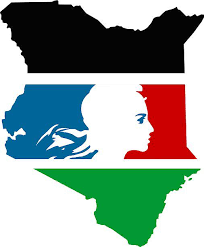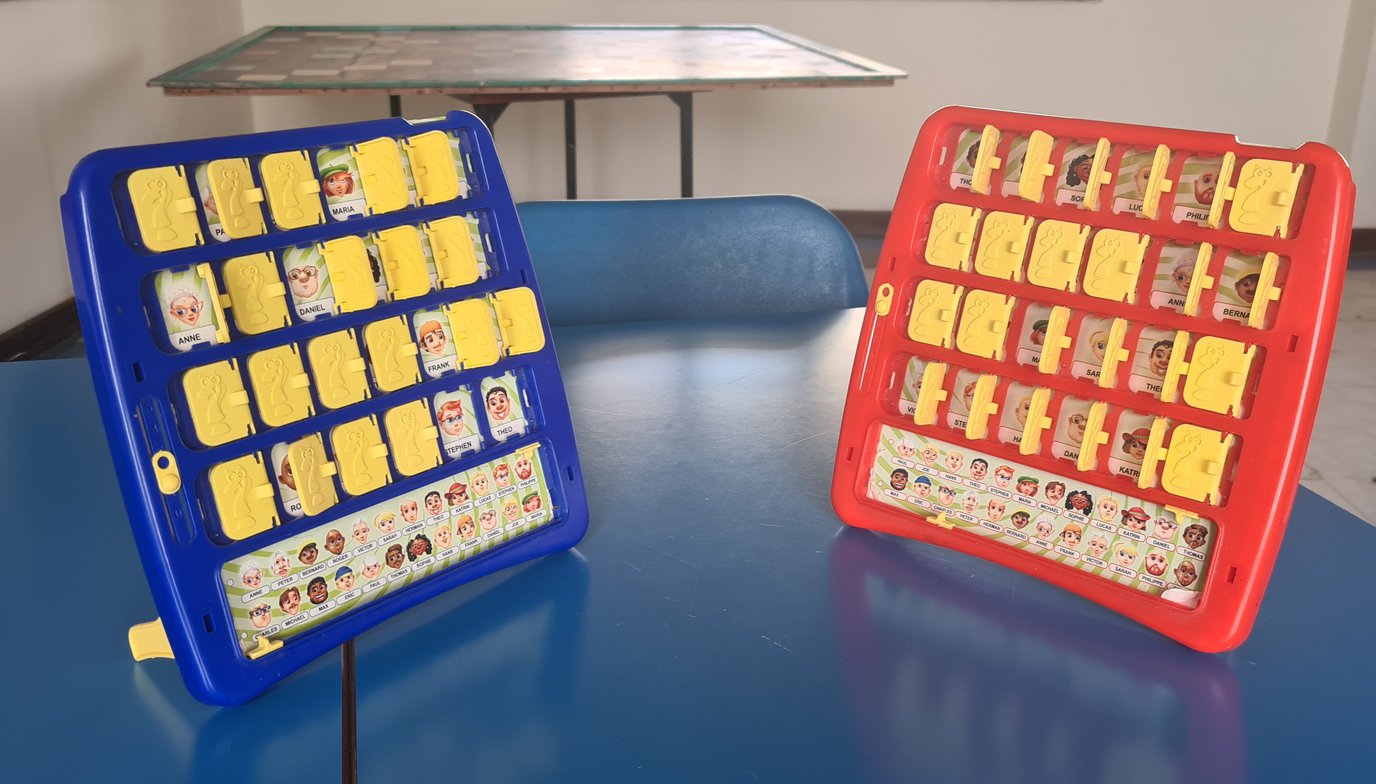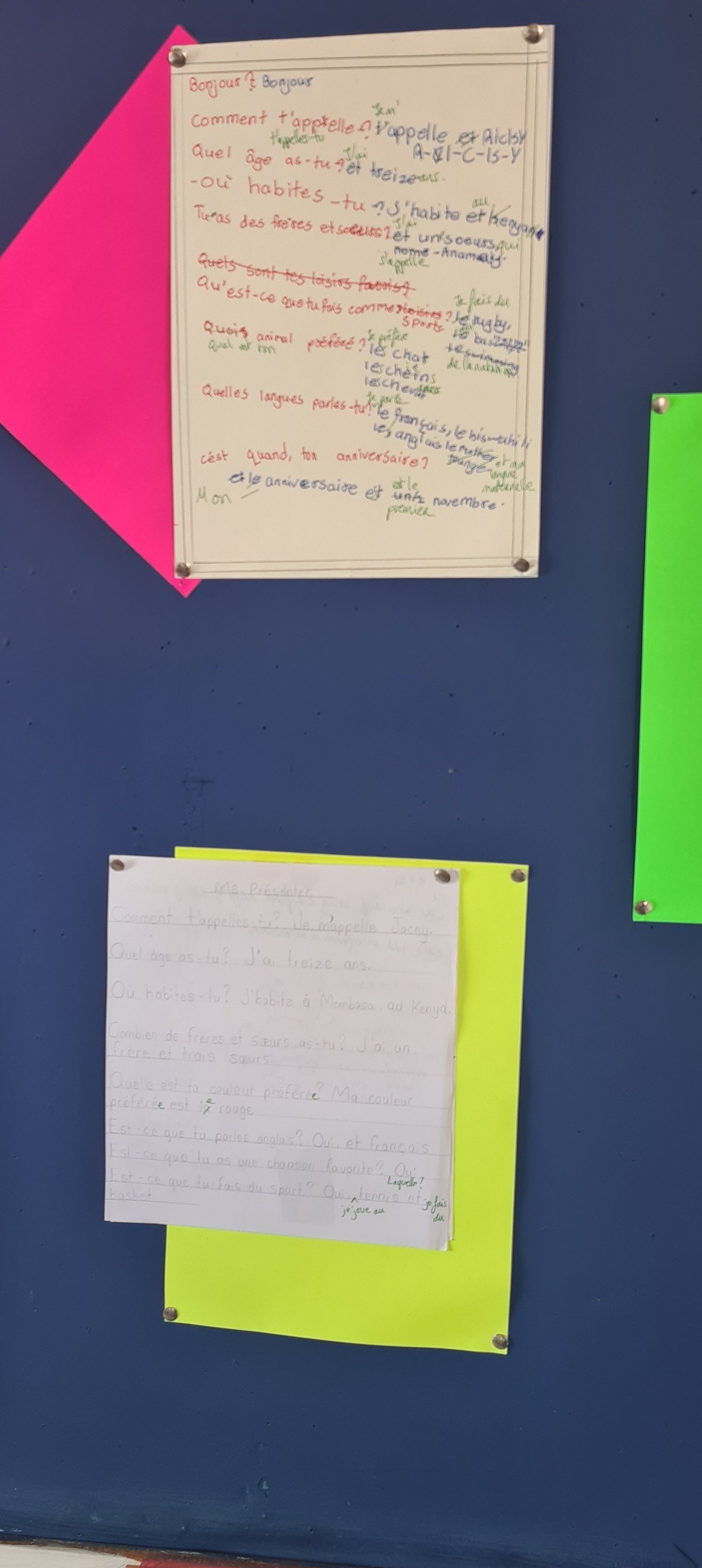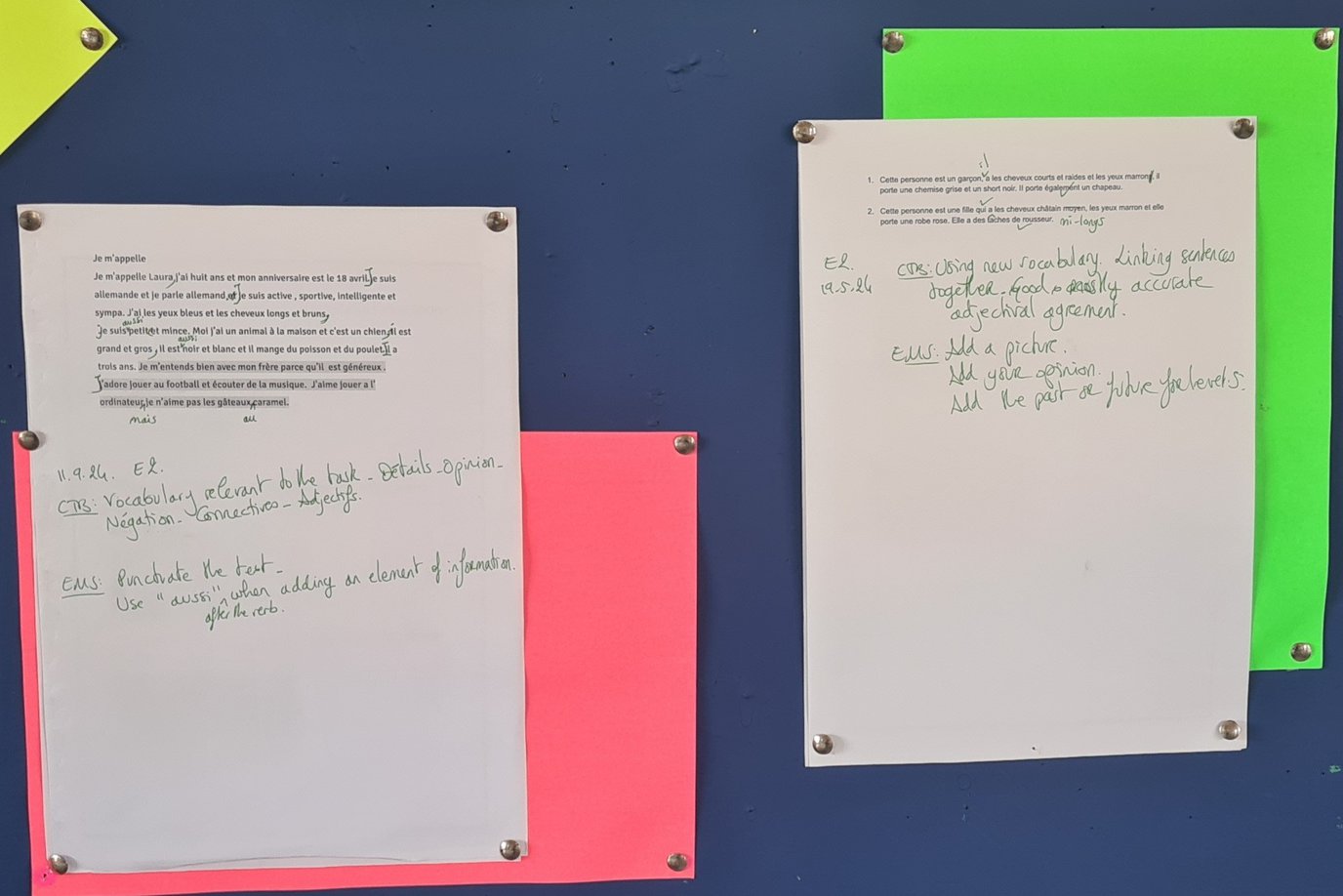Les Dépêches Françaises
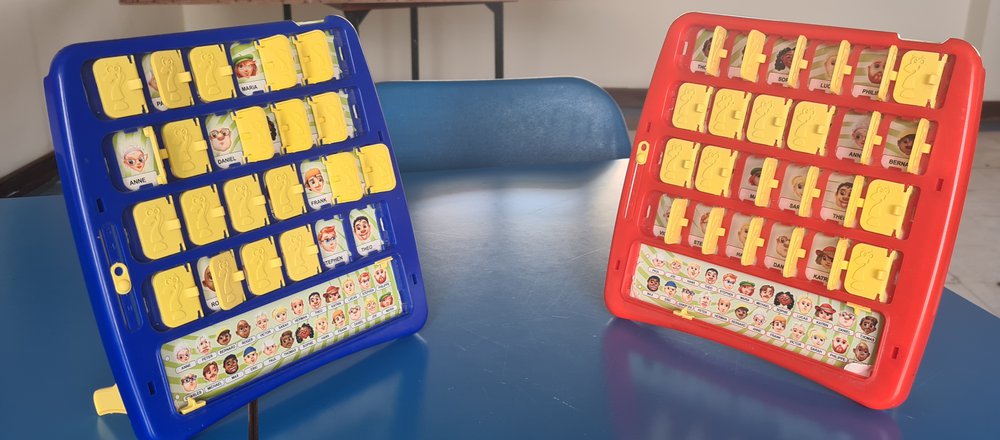
27th September 2024
Les élèves de 5ème ont joué à “Qui-est-ce?” afin de s'entraîner à poser des questions en lien avec les traits physiques d’une personne. Elles ont aussi revu l’accord des adjectifs et le vocabulaire pour décrire le visage et la personnalité de quelqu’un de leur entourage ou de quelqu’un célèbre.
Afin de préparer le contrôle oral de manière ludique et active, les élèves de 4èmes ont joué aux fléchettes. Les points gagnés avec une fléchette tirée déterminaient le numéro de la question à laquelle il fallait répondre. Les élèves se sont bien amusés et il y avait vraiment une ambiance d’entraide et de joie pendant cette leçon. La prochaine fois, le défi sera de lancer une deuxième fléchette qui déterminera le nombre de mots à utiliser dans la réponse.
Les élèves de 2nde doivent jongler avec les quatre compétences de langage à chaque leçon afin de maximiser leurs chances pour l’examen final en mai-juin. Ils font un exercice de compréhension oral et écrite à chaque fois, revoient un point de grammaire précis et pendant la pratique orale, peaufinent leur vocabulaire, structures de phrases et conjugaisons, ainsi que la compréhension des instructions. L'écrit est donné en devoirs et corrigé et amélioré pendant les cours. Des exercices de conversations générales sont aussi donnés en devoirs à la maison et présentés en conditions d’examens pendant la leçon afin d'habituer les élèves au format du diplôme.
Year 8 students played “Guess who?” to practise descriptions. They revised adjectival agreements and described someone’s physical appearance and personality.
In order to prepare for the speaking test in a fun and active way, Year 9 students played darts in one of their lessons last week. They played with one dart each and the number of points the dart landed on determined the number of the questions they had to answer. Collaboration and teamwork were evident in this lesson and students had a lot of fun practising for their speaking test. Next time, the challenge will be to throw a second dart that will determine the number of words to use in the answer.
Year 11 students will sit their final IGCSE examination in May-June next year and it is crucial that they practise the 4 language skills as often as possible. As a result, each lesson is planned to give students the opportunity to practise a listening comprehension and reading comprehension task similar to the ones they will encounter in the final examination, a task that allows them to review a specific grammar point and plenty of speaking opportunities to improve and perfect their vocabulary, sentence structures and conjugations, as well as their understanding of instructions. Written tasks are often done at home but reviewed, corrected and improved in class. The general conversation part of the speaking examination can also be prepared at home but students are then expected to complete it in examination conditions in their lessons in order to get used to the format and expectations of the final examination.
Mme Mwangi
